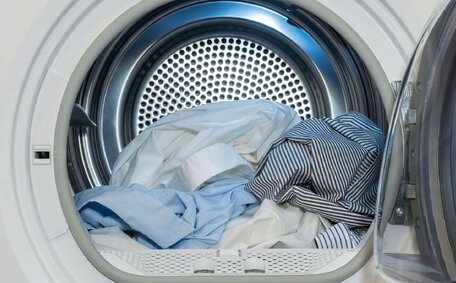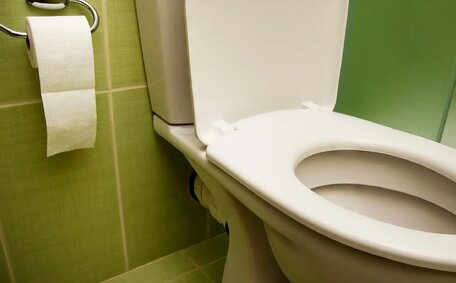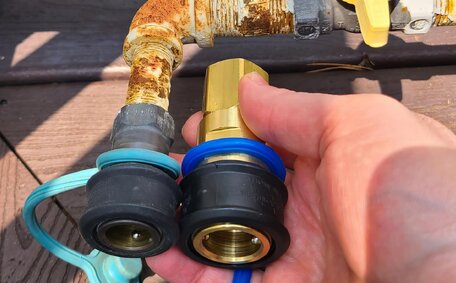What Causes Pipes to Rust Over Time
There are a few key culprits behind rust formation in pipes over time. There are a few key culprits behind rust formation in pipes over time. Older pipes made from materials like galvanised steel are more prone to interior corrosion and rust buildup. As infrastructure ages, rust begins to accumulate.
Water chemistry can also spur rust. Properties of the water running through your pipes, like acidity and mineral content, can react with pipe materials promoting corrosion. Hard water with high mineral content is particularly problematic.
The types of pipes in your home impact rust potential. Galvanised steel pipes are more susceptible compared to modern plastic pipes. Copper also corrodes over time.
Proper maintenance like replacing outdated pipes, water softeners to treat hard water, and keeping an eye out for leaks can help prevent extensive rust problems.
Common Signs You Have Rust Buildup in Pipes
There are several telltale signs that your pipes may be experiencing extensive rust buildup:
- Discoloured water - If you notice brown, red, or yellow tinged water coming out of your taps, rust is likely contaminating your water supply. This rusty water is not only unappealing but could potentially stain sinks and clothing.
- Reduced water pressure - As rust accumulates and narrows your pipes, you may experience decreased water pressure. Lower pressure makes household tasks like showering more difficult.
- Leaky pipes - Rust weakens the integrity of pipes, making them more susceptible to cracks and leaks. Any amount of leakage could indicate a corrosion issue.
- Stained fixtures - Rusty water dripping from faucets or shower heads can stain and corrode the fixtures themselves. Brown stains around your faucets is a warning sign.
- Metallic taste - The rust can also affect the taste of your water, leaving a unpleasant metallic flavour.
If you notice any of these red flags, take steps to treat your plumbing system for rust accumulation or contact a professional plumber to help resolve the issue.
How Rust Buildup Leads to Blocked Drains
Rust buildup in pipes can be a major contributor to blocked drains. As rust flakes off the interior of pipes, it can accumulate in your drains. Over time, this buildup narrows your drain’s opening, impeding water flow.
The rust particles bond together, forming a thicker and thicker layer inside the drain walls. Eventually, this restricts water from passing through easily, leading to slow drainage. The drain becomes progressively clogged as more rust, dirt, and debris attach to this buildup.
Excessive rust scale has an abrasive, sandpaper-like texture that can catch all types of particles flowing through your drains. Hair, soap scum, grease, and other gunk easily snag on the rough rust deposits.
A complete blockage occurs once the rust and debris completely plug your drain. Water backs up with nowhere to go. You’ll notice very slow draining from fixtures, gurgling sounds, pooling water, or overflow.
Rust buildup that leads to full blockages requires professional drain cleaning. A plumber can use specialised equipment to clear out the accumulated rust and restore proper water flow.
Health Risks Associated with Rust in Pipes
Rust buildup in plumbing systems poses potential health hazards that homeowners should be aware of. Rust itself is not a serious health threat, but over time it can contaminate drinking water, leading to health issues.
The most concerning risk is exposure to lead that has leeched from pipes into rusty water. Old metal water pipes often contain traces of lead that corrode at a faster rate as rust develops. Ingesting even small amounts of lead can cause severe health effects, especially in children.
Other heavy metals like copper and iron that accumulate in rusty water are also detrimental in high doses. Iron can leave stains and a foul taste, while excess copper triggers nausea and diarrhoea. People with pre-existing conditions may be at higher risk.
Bacteria and other microorganisms also thrive in rusty pipes. Rust buildup provides a surface for biofilms to grow, potentially introducing harmful pathogens into your water. This leaves you more vulnerable to gastrointestinal illness.
Consider investing in pure water filters and routine plumbing maintenance to avoid these problems.
Discoloured water discourages staying hydrated. Rust’s metallic flavour makes water unpalatable. Rusty water’s appearance, smell and taste are unappealing.
Tips to Prevent Rust Buildup in Pipes
Preventing rust in your plumbing system involves establishing proper maintenance routines and being proactive about pipe repairs. Here are some tips you can implement:
- Replace outdated pipes prone to rust like galvanised steel. Modern copper, PEX or CPVC pipes resist corrosion much better.
- Install pipes with thicker walls that can withstand abrasion and last longer before rusting.
- Use pipe insulation around hot water lines to reduce condensation that breeds rust.
- Treat hard water with a water softener. This prevents mineral buildup inside pipes.
- Clean aerators and showerheads regularly to remove rust particles before they reach drains.
- Fix even minor leaks quickly to avoid damage and rust at joints.
- Add corrosion inhibitors to your water supply to create a protective coating inside pipes.
- Flush pipes thoroughly after long periods of vacation/low use to clear out stagnant water.
- Have a plumber inspect your plumbing during home inspections or repairs to check for rust problems.
Taking preventative measures can significantly prolong your plumbing lifespan and avoid extensive rust complications down the line.
When to Call a Professional Plumber
While some plumbing issues can be DIY projects, extensive rust buildup often warrants calling in a professional plumber for assistance. Here are some key times to contact the experts:
- You notice sudden loss of water pressure or flow. This signals a serious blockage that requires powerful drain cleaning equipment.
- The rust and corrosion has led to leaks, especially in hard to access places. Leaky pipes need replacement.
- Your water supply is discoloured and contaminated appearing brown or yellow. The rust needs flushing from pipes.
- You have galvanised steel pipes prone to rust. Re-piping the system is recommended.
- Drain blockages persist after trying DIY drain cleaners. A plumber can fully clear the obstruction.
- Rust has damaged valves, pumps or other critical plumbing components. Professionals can inspect and replace parts.
- You have health concerns like lead exposure from antiquated pipes.
- You want to prevent extensive damage through regular maintenance. Plumbers perform routine corrosion checks.
For trusted plumbing solutions for any rust or corrosion issues in Ryde, contact the licenced professionals at Ryde Plumbing.
Our skilled team offers drain cleaning, leak repair, pipe replacement and more. Get your plumbing system back in top shape. Get your plumbing system back in top shape.
Long-Term Solutions for Replacing Rusty Pipes
Replacing outdated, rusty pipes is one of the most effective long-term solutions for preventing extensive plumbing issues. Studies show corroded pipes account for nearly 24% of all plumbing repairs annually. Investing in new piping can prevent costly damage.
Installing corrosion-resistant pipes like copper, CPVC or PEX lines when re-piping can last 50+ years before corrosion problems occur. Plastic pipes are affordable, durable options. Copper offers superior longevity but at a higher price point.
For hot water lines, insulating new pipes helps control condensation, water temperature fluctuations and subsequent rust formation. Properly sized pipes are less prone to interior corrosion.
Full pipe replacement provides the opportunity to upgrade your plumbing system and improve water flow. New efficient designs prevent blockages that rusted pipes often cause. Many homeowners opt to re-pipe when renovating or notice leaky pipes.
Seeking professional help for re-piping is highly recommended unless you’re an experienced plumber. Licenced plumbers have the expertise to ensure full, compliant pipe replacement and restoration of your water supply.
At Ryde Plumbing, our specialists stay current on the best piping materials and plumbing codes to deliver safe, effective solutions tailored to your needs. We handle the entire replacement process including design, installation, cleanup and follow-up.
Give the professionals at Ryde Plumbing a call at 1300 349 338 if you need piping upgrades or replacements to resolve persistent rust issues and minimise future maintenance calls. Investing in new pipes now prevents costly problems down the road.






